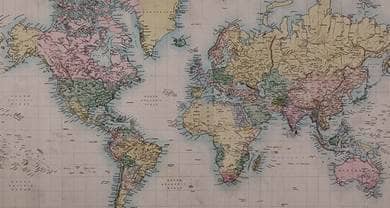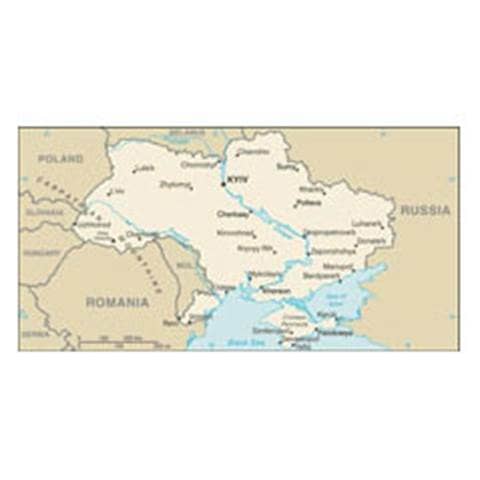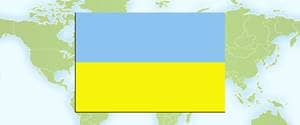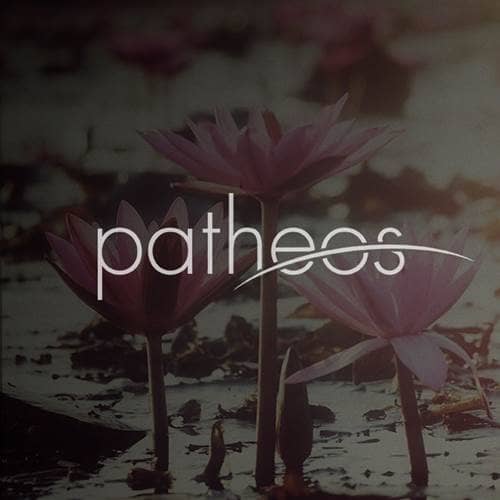- Trending:
- Forgiveness
- |
- Resurrection
- |
- Joy
- |
- Trump
- |
- Kamala Harris
- |
- Supreme Court

RELIGION LIBRARY
Ukraine

The country has an area of 233,000 square miles and a population of 45.7 million. The Government estimated there are 33,000 religious organizations representing 55 denominations in the country.
According to official government sources, Orthodox Christian organizations make up 52 percent of the country's religious groups. The Ukrainian Orthodox Church (Moscow Patriarchate, abbreviated as UOC-MP) is the largest group, with significant presence in all regions of the country except for the Ivano-Frankivsk, Lviv, and Ternopil oblasts (regions). The UOC-MP is officially registered as the Ukrainian Orthodox Church. The second largest Orthodox group is the Ukrainian Orthodox Church of the Kyiv Patriarchate (UOC-KP), with most followers located in western and some central oblasts. The UOC-MP does not recognize the UOC-KP. The Ukrainian Autocephalous Orthodox Church (UAOC) is the smallest of the three Orthodox churches, with approximately 70 percent of its adherents in the western part of the country.
Adherents of the Ukrainian Greek Catholic Church (UGCC) constitute the country's largest non-Orthodox religious group and the largest one in the western part of the country. UGCC members number approximately 4 million, with 93.5 percent located in the western regions. While members of the three Orthodox churches comprise a majority of believers in the western part of the country overall, the Greek Catholic communities constitute a majority in three of the eight western oblasts: Lviv, Ivano-Frankivsk, and Ternopil.
Some Muslim leaders estimate there are 2 million Muslims in the country, although estimates by the Government and independent think tanks put the number at 500,000. The majority are Crimean Tatars, numbering an estimated 300,000 and constituting the third-largest ethnic group in Crimea. The Crimean Tatars have their own governing council (Crimean Tatar Mejlis) and language (Crimean Tatar). Crimea's majority ethnic Russian population is predominantly affiliated with the UOC-MP.
The Roman Catholic Church, with approximately one million adherents, is traditionally associated with citizens of Polish ancestry, who live mainly in the central and western regions.
According to the State Committee on Nationalities and Religions, 30 percent of the country's religious communities are Protestant. The Evangelical Baptist Union of Ukraine (the Baptist Union) is the largest Protestant group, claiming more than 300,000 members and more than 2,700 churches.
Other communities include Pentecostals, Seventh-day Adventists, Jehovah's Witnesses, Lutherans, Jews, Anglicans, Calvinists, Methodists, members of The Church of Jesus Christ of Latter-day Saints (Mormons), Presbyterians, Buddhists, and adherents of Krishna Consciousness.
Based on a 2001 census, the State Committee of Statistics estimated there are 103,600 persons of ethnic Jewish origin in the country. Some Jewish community leaders, however, estimate that 170,000 citizens were born to a Jewish mother and as many as 370,000 are eligible to immigrate to Israel because of their Jewish heritage.
A 2007 survey by the independent think tank Razumkov Center found that 40 percent of respondents consider themselves believers not belonging to any denomination, while 37 percent consider themselves believers of a particular religious organization. Of the latter group, 33 percent affiliated themselves with the UOC-KP, 31 percent with the UOC-MP, 18 percent with the UGCC, and 2.5 percent with the UAOC. Less than 5 percent of those surveyed declared themselves Roman Catholics, Protestants, Muslims, or Jews.
According to the 2007 survey, of those who considered themselves believers of a particular religious group, 34 percent said they attend religious services one to two times per year; 23 percent once in several months; 14 percent one to three times per month; 9 percent once per week; 2 percent several times per week; 6 percent once in several years; and 9 percent almost never. The survey also showed that almost 90 percent of religiously active citizens are Christians, the majority Orthodox, and that religious practice is generally strongest in the western part of the country.
According to an opinion poll conducted jointly by the Kyiv International Institute of Sociology and the Sociology Institute of the National Academy of Sciences in October 2008, the level of public trust in religious institutions is higher than in Parliament, the business sector, and the educational and judicial systems.
| Population | Population (2009 est.) 45,700,395 |
| Religious Demographics | Ukrainian Orthodox - Kyiv Patriarchate 50.4%, Ukrainian Orthodox - Moscow Patriarchate 26.1%, Ukrainian Greek Catholic 8%, Ukrainian Autocephalous Orthodox 7.2%, Roman Catholic 2.2%, Protestant 2.2%, Jewish 0.6%, other 3.2% (2006 est.) |
| Ethnic Groups | Ethnic Groups Ukrainian 77.8%, Russian 17.3%, Belarusian 0.6%, Moldovan 0.5%, Crimean Tatar 0.5%, Bulgarian 0.4%, Hungarian 0.3%, Romanian 0.3%, Polish 0.3%, Jewish 0.2%, other 1.8% (2001 census) |
| Languages | Languages Ukrainian (official) 67%, Russian 24%, other 9% (includes small Romanian-, Polish-, and Hungarian-speaking minorities) |
| Country Flag |  |










